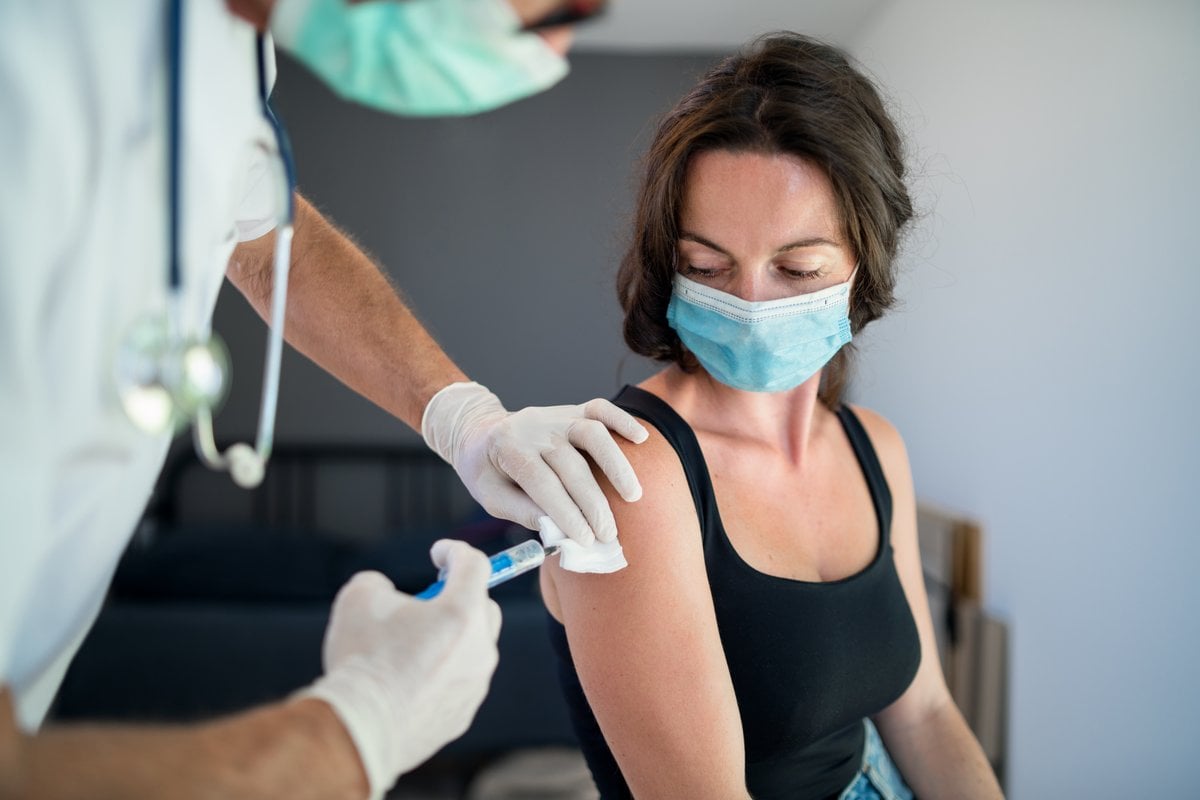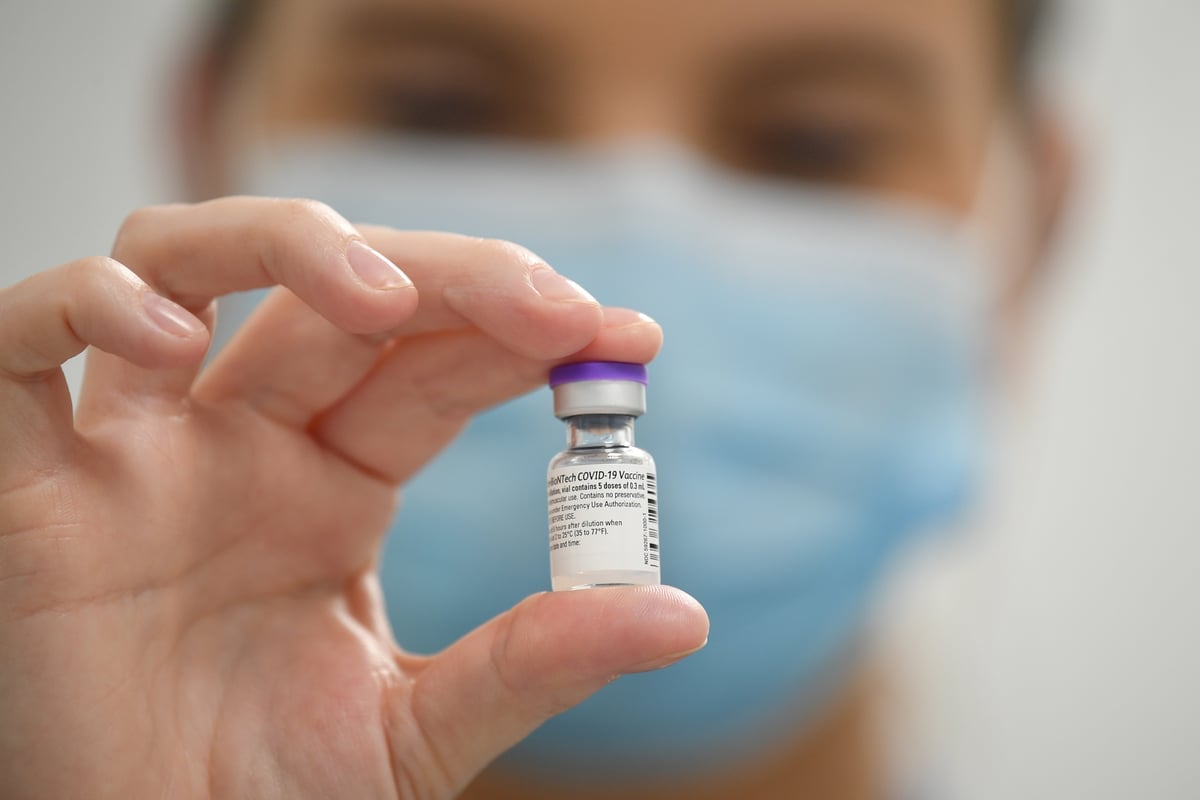
Australian Stefanie Petrides' family all lives overseas, and she hasn't seen them in years.
She's also the mother of a three-year-old, and planning to try for another child.
But with the COVID-19 pandemic keeping her and her family separated for longer than usual, and the uncertainty of travel plans and vaccination timelines - especially if Petrides did fall pregnant - she's feeling torn.
Speaking to Mamamia's daily news podcast The Quicky, Petrides said she was weighing up pausing her baby plans to get vaccinated in the hope of seeing family overseas sooner, or trying for a baby as soon as possible - which could mean possibly pushing back vaccination, and probably the travel that comes with it.
Watch: How to talk to anti-vaxxers. Post continues below video.
Qantas CEO Alan Joyce said in November the airline would likely require international passengers to prove they have been vaccinated against COVID-19 before boarding their flight.
"[My' family is] spread across Greece, the United Arab Emirates and London, and we all try meet in Greece every few years and that was meant to be 2020. So, it's been quite a while," Petrides explained.



Top Comments